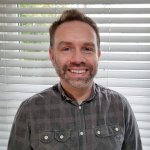

Innovations in methodology
We are leading centre of expertise in social research methodology with particular strengths in complexity modelling and social simulation, survey research methodology, statistical modelling, qualitative methodology, methodological integration, virtual methods, and the use of new technologies for social research.
Research areas
Our research covers a range of topics which relate to complexity modelling, qualitative methodologies and quantitative social science.
The Centre for Research in Social Simulation (CRESS) is one of the world leading centres in agent-based modelling with more than 100 externally funded projects across its 25 year lifespan. Nigel Gilbert, a pioneer in simulation research in the social sciences, has applied the method across varied fields such as innovation, energy consumption and the Sicilian Mafia. Much of his work focuses on agent-based modelling as a policy tool. Corinna Elsenbroich’s research on social norms and collective dilemmas looks at how to strengthen agent-based modelling’s integration in the social sciences. She works on fundamental aspects of the epistemology and ontology of ABM. Kavin Narasimhan’s research on ABM has produced models of energy consumption and the management of irrigation in Africa.
The Centre for the Evaluation of Complexity across the Nexus (CECAN) develops and promotes complexity sensitive approaches and methods for policy evaluation in Nexus (food, water, energy and the environment) areas. It brings together social scientists, policy makers and policy analysts to help to improve policy evaluation in government, the third sector and business. Alex Penn’s and Peter Barbrook-Johnson’s work on Participatory Systems Mapping for helping groups of stakeholders develop simple causal maps of issues using collaborative web-based software has led to intense collaboration with the UK’s Department for Food, Environment and Rural Affairs (Defra) on agri-food-water interdependencies. Corinna Elsenbroich’s expertise is in methods and method combinations for new approaches to applied policy problems. She has worked on developing new methods for the National Risk Assessment with the Cabinet Office. Jack Newman’s research looks at causal factors of productivity differences across regions of the UK. Martha Bickett’s research activity focuses on sustainable resource use and the circular economy. Maria Xenitidou works on informed consent and ethical principles in the context of ‘Smart Homes’.
CECAN collaborates with a range of government departments (e.g. Defra, Beis, Cabinet Office), arms length bodies (e.g. Environment Agency, Food Standards Agency) and national organisations (e.g. UK Evaluation Society).
CECAN and CRESS run a range of short training courses on complexity social science methods aimed at professionals and researchers.
Work in this area focuses on the use of qualitative data analysis software. Researchers also work on micro-ethnography, walking interviews and a range of innovative and digital methods.
The Computer Assisted Qualitative Data Analysis (CAQDAS) Networking Project was formally established in 1994 and provides information, advice, training and support for anyone undertaking qualitative or mixed methods analysis using dedicated qualitative software packages. The team runs a series of popular face-to-face and online training courses.
Christine Hine has a long-standing focus on research methods in relation to digital phenomena. In particular, she has developed mobile and connective approaches to ethnography that combine online and offline social contexts. She is author of Virtual Ethnography (2000, Sage), Ethnography for the Internet (2015, Bloomsbury) and Understanding Qualitative Research: The Internet (2012, Oxford University Press), editor of Virtual Methods (2005, Berg) and co-editor of Digital Methods for Social Science (2016, Palgrave). She has recently published on autoethnographic approaches to the study of smart home technologies, also discussed in a Sociology podcast. She is also co-editor of a forthcoming collection on Research Methods for Digital Work and Organizations (Oxford University Press) together with Gillian Symon and Katrina Pritchard which spans the full range of data forms and research methods.
Tom Roberts utilises a range of qualitative research methods in order to develop our understanding of the interface between the natural and social worlds. His current projects explore the usage of novel and dynamic qualitative methods such as micro ethnography and walking interviews.
Peter Hemming has developed and made use of a wide range of qualitative child- and youth-centred methodologies, including photography, drawing, story, collage, mapping, drama, and digital journaling techniques.
Robyn Muir has focused on using facet methodology to explore complex phenomenon’s through textual and content analysis, interviews, and autoethnography. Through her media literacy work, she has focused on qualitative child and youth centred methodologies including drawing, as well as online tools such as Padlet.
Work in this strand focuses on the application of advanced quantitative methodologies to address real world sociological problems.
Ian Brunton-Smith is leading the ESRC funded Re-Counting Crime project, which is exploring how new statistical methods can help improve the accuracy and precision of crime estimates. He has also been working with colleagues from the London School of Economics to assess how mixed-effects location-scale models can be used to incorporate the impact of social consensus on the meaning of ecological effects.
Giulia Berlusconi is working with colleagues from Cardiff University on the ESRC funded Cyber-TNOC project using network models to analyse online dark web market data and traditional offline trafficking flows. She has been working with colleagues from Cardiff University and Università Cattolica del Sacro Cuore to assess the impact of different cross-border interdictions on drug trafficking routes using network analysis and simulations.
Rob Meadows is currently working on a range of projects exploring the operationalisation of sleep and recovery within large scale data sets. This includes work with Ian Brunton-Smith and colleagues from Helsinki, exploring how our knowledge of inequalities across sleep and recovery might be contingent on the methods used.
Thiago Oliveira draws on statistical, data science, and econometric methods to study the consequences of police misconduct. His interests include longitudinal data analysis, causal inference with observational data, measurement, spatial data models, and R programming. His recent work focused on strategies to leverage panel data to make causal claims. He has also been working with colleagues from the University of Oxford and the University of Cambridge on measurement models to estimate neighbourhood-level latent variables using community surveys.
Find an expert

Professor Ian Brunton-Smith
Professor of Criminology and Sociology

Professor Martin Bulmer
Professor of Sociology

Professor Nigel Fielding
Emeritus Professor

Professor Nigel Gilbert
Professor of Sociology

Professor Christine Hine
Professor of Sociology

Dr Christina Silver
Associate Professor (Teaching), Director of CAQDAS Networking Project

Dr Peter Hemming
Senior Lecturer in Sociology

Dr Robyn Muir
Lecturer in Media and Communication
